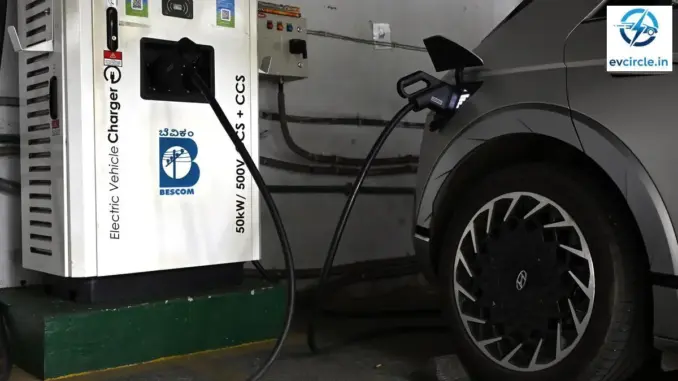
To speed up electric vehicle adoption, the government has issued guidelines for obtaining subsidies for vehicle charging stations, battery swapping facilities and battery charging stations, offering up to 100% support.
The guidelines fall under the ₹10,000 crore PM E-drive scheme to promote electric vehicles nationwide, within which ₹2,000 crore has been earmarked for charging infrastructure.
The guidelines, released late on Sunday evening, specify entities eligible for subsidies and provide assistance for deployment of upstream infrastructure costs, and in some instances, also for EV Supply Equipment (EVSE) expenses.
Upstream infrastructure covers distribution transformers, low- and high-tension cables, distribution boxes, circuit breakers/isolators, mounting structures, fencing, and civil works. EVSE comprises EV chargers including charging guns.
As per the scheme guidelines, ministries of the Government of India, Central Public Sector Enterprises (CPSEs), States and Union Territories, and public sector undertakings (PSUs) under them are eligible to submit proposals to the Ministry of Heavy Industries (MHI). These entities will be required to designate nodal agencies to consolidate demand and identify appropriate sites for charging stations before forwarding proposals to the ministry.
Entities may establish, operate, and maintain EV charging stations directly, or appoint Charge Point Operators (CPOs) for the purpose.
Major central ministries such as Petroleum & Natural Gas, Road Transport & Highways, Health & Family Welfare, Power, Housing & Urban Affairs, Railways, Civil Aviation, Steel, and Ports, Shipping & Waterways will be able to submit proposals through their CPSEs or designated nodal agencies.
Public sector firms and bodies including Indian Oil Corporation Ltd. (IOCL), Bharat Petroleum Corporation Ltd. (BPCL), Hindustan Petroleum Corporation Ltd. (HPCL), National Highways Authority of India (NHAI), Airports Authority of India (AAI), Steel Authority of India (SAIL), Container Corporation of India (CONCOR), Convergence Energy Services Ltd (CESL), and metro rail corporations are also eligible to apply either directly or via their parent ministries.
The eligible entities will be expected to coordinate across their networks to map demand and finalise installation locations for the charging infrastructure.
States and Union Territories will carry out a similar function, appointing nodal agencies to aggregate demand.
The government’s PM E-DRIVE scheme will give priority to installing electric vehicle charging stations in cities with a population above one million according to the 2011 census, smart cities notified by the Ministry of Housing and Urban Affairs (MoHUA), and satellite towns linked to the seven major metros — Delhi, Mumbai, Kolkata, Chennai, Hyderabad, Bangalore, and Ahmedabad.
Additionally, capital cities of all states and Union Territories not captured by these categories, along with cities listed under the National Clean Air Programme (NCAP), will receive targeted focus for deployment. However, eligible entities may also opt to install EV charging stations in other cities based on specific needs such as EV penetration levels, enabling a flexible, demand-driven rollout of charging infrastructure across India.
Beyond municipal boundaries, the scheme envisions making selected inter-city and inter-state highways EV-ready for chargers. Route selection will be undertaken in consultation with the Ministry of Road Transport and Highways (MoRTH) and other stakeholders.
See also: Top Fastest Charging Electric Vehicles in 2025 Revealed
Tech enthusiast and researcher passionate about innovations shaping the future of mobility.
Leave a Reply